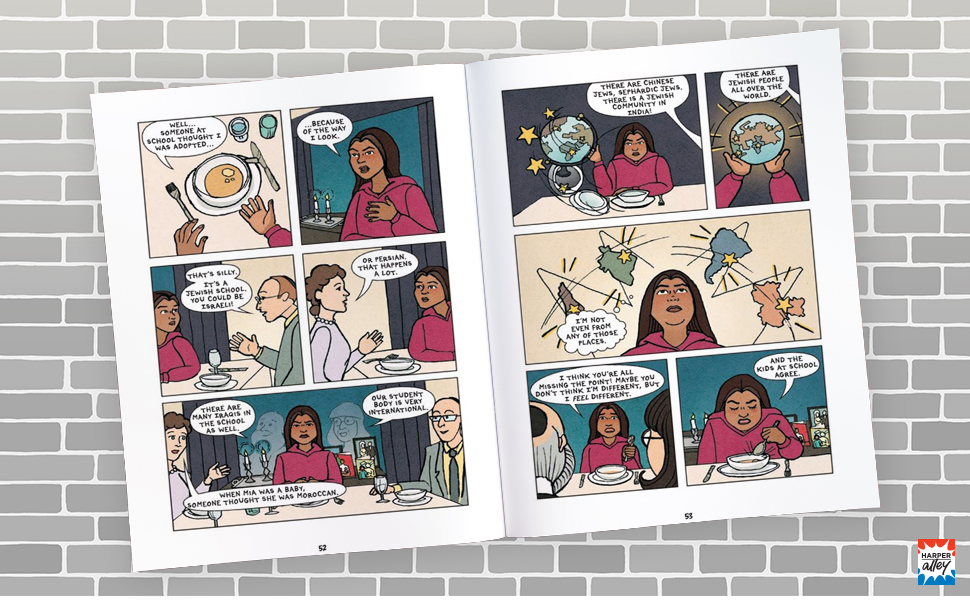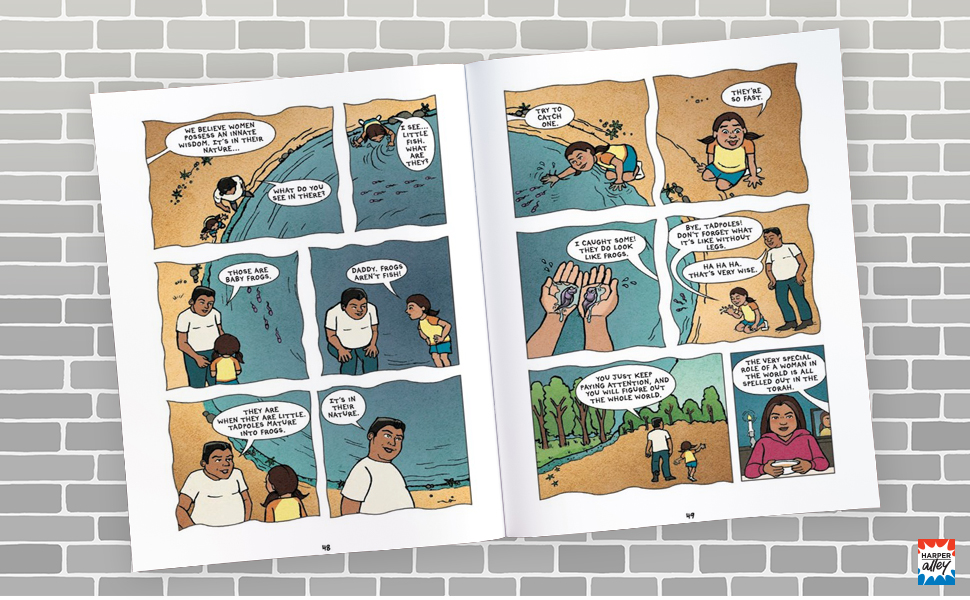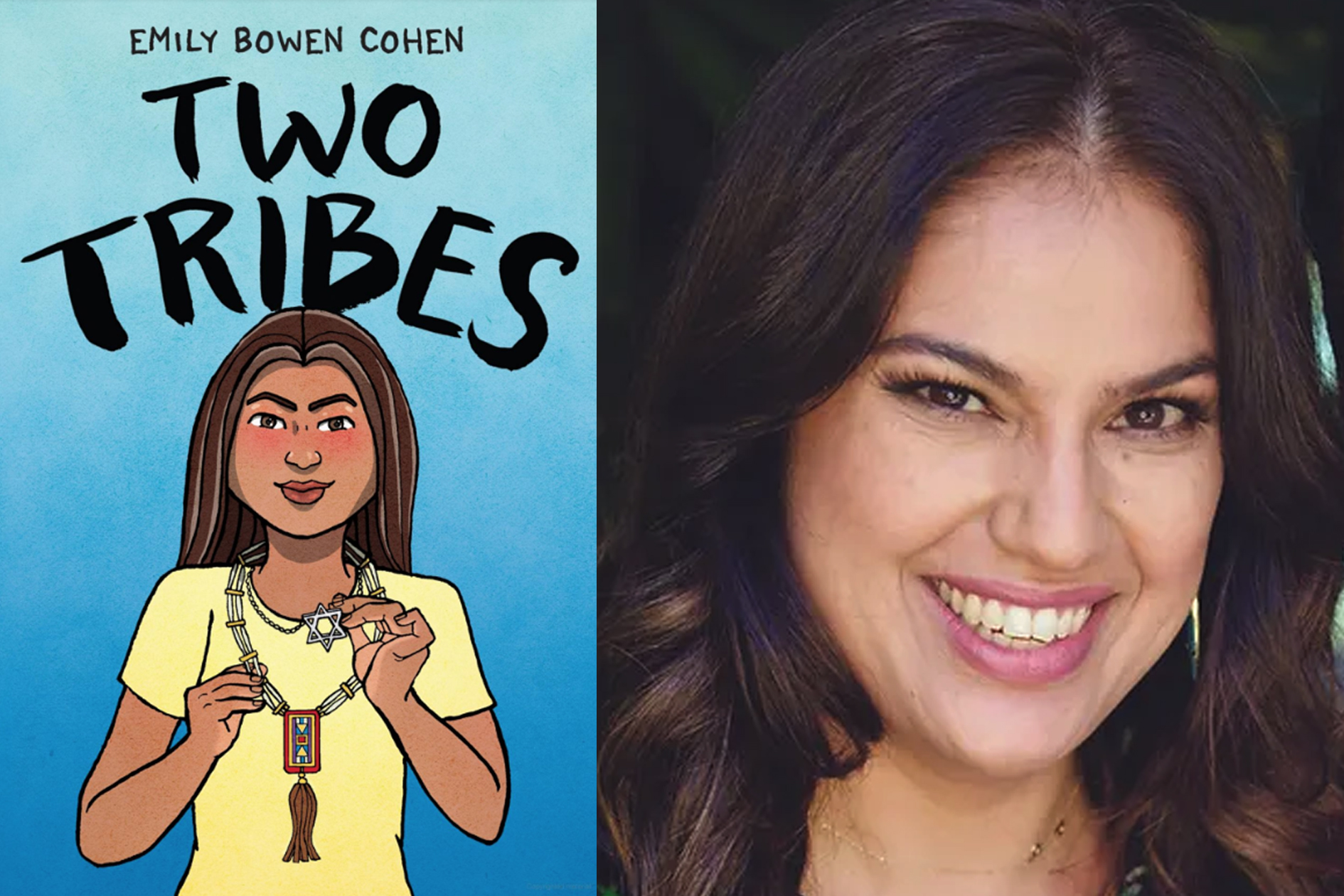Learn about author Emily Bowen Cohen in her own words before she visits this week! |
Nov. 16, author Emily Bowen Cohen visits Shirlington Library! She is Jewish and a member of the Muscogee (Creek) Nation. Her debut graphic novel, "Two Tribes," follows a young girl from a similar background struggling to reconcile her dual identity.
Cohen will reflect on themes common to Indigenous and Jewish American experiences such as the importance of places that feel like home, historical persecution and oppression and cultural traditions using her own illustrations and comic panels. |
 |
Emily grew up in rural Oklahoma. Her father was the Chief of Staff at their tribal hospital and her mother is "a nice Jewish girl from New Jersey." When Emily was nine years old, her father passed away and she was separated from her Native family. |
On growing up Jewish in a small community in Oklahoma. |
"In Oklahoma, surrounded by so many Native Americans, it's really easy to be part of the Indian community. But — it's much harder to be Jewish." In Oklahoma in the 1980s, the lines between church and state were "fuzzy," she said. "Our part of Oklahoma was smack in the middle of the Bible Belt." After a few uncomfortable experiences for her Jewish children in public school, Bowen Cohen recalled, her mother was "called to action." So, off they went to a synagogue in Tulsa (the big city, about a 90-minute car ride away), "so I could go to Sunday school." |
On maintaining a connection with her Native community after moving away. |
"When I was twelve years old, I moved from Indian Country to a place where I was often the first Native person people had ever met. My father, a member of the Muscogee Nation, had passed away a few years earlier. We relocated from Oklahoma to the East Coast so we could be closer to my maternal grandparents. The move compounded a loss. I was deprived of my father and my Native community." |
"I was lucky that my grandmother, my mother's mother, was a school librarian. The year we moved she gave me the book 'A Yellow Raft in Blue Water' by Michael Dorris. It was the first time I read a story about a contemporary Native American girl.
I know my grandmother's gift was deliberate. I was confronting real questions about my identity. Fellow students assumed I knew how to ride a horse. They wondered if I lived in a teepee. But after school, I could read about Rayona, another girl struggling with her Indigenous identity. Books were the way I stayed tied to a Native community." |
On the most surprising commonality between her "two tribes." |
"Our creation stories share elemental themes. In the Jewish tradition, the world starts as an unformed void with no light. In my Muscogee tradition, the world begins in darkness as well — light is obscured by a thick fog. The more deeply I study my two cultures, the more similarities I find. These connections affirm my dual identity." |
 |


No comments:
Post a Comment